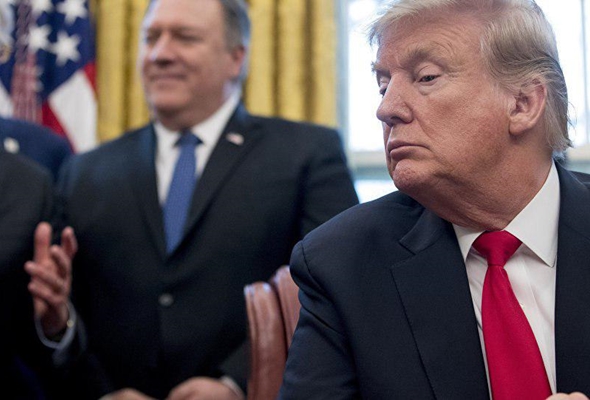In the latest anti-Iranian move by President Trump, the United States of America imposed sanctions on Iranian Foreign Minister Mohammad Javad Zarif, who has held the post since 2013 and managed to hammer out the JCPOA deal after 12 years of diplomatic work on the nuclear case. Such an action may be unprecedented in the world, but it was predictable given Zarif’s great power to impress, his media power in the world, and his importance in the administrative framework of the Islamic Republic.
The sanction was imposed while Washington has been constantly talking about direct negotiations and dialogue with Tehran without preconditions these days. There is also speculation that the proposal for a meeting between Iran’s foreign minister and the US president has been put forward in the meeting between Zarif and Rand Paul, a Republican senator close to Trump.
Contrary to popular belief that imposing sanction on Zarif was opposite to this trend and to the proclaimed US policy of dialogue with Iran, I believe, as cited by a number of American officials and diplomats in Washington, that their biggest problem with Zarif is that they think the foreign minister of Iran lacks the power and authority to hold effectual negotiations. US Secretary of State Mike Pompeo maintains that Zarif cannot make a decision about the US talks and its details, saying “Zarif is a key enabler of Ayatollah Khamenei’s policies throughout the region and around the world.”
I believe that the United States has sent Iran the clear message with this measure that although it is open to talks, Iran must be represented by a figure at the negotiating table that would have the necessary authority, otherwise a real dialogue will not be shaped.
However, this is what the politicians in Washington claim and have in mind, and definitely not the whole truth, as President Rouhani holds a different view. A few hours after the imposition of sanctions on Zarif, the president made it crystal clear in an address in Tabriz that “the path to diplomacy goes through the Foreign Ministry, and the head of the ministry is Foreign Minister Zarif.”
Moreover, the Islamic Republic has emphasized several times that it will mull over talks with the US only if the whole sanctions after the US withdrawal from the JCPOA are lifted and the activities described by Zarif as “economic terrorism” come to an end. Nonetheless, and despite the explicit policies of Tehran, the Americans speak about a change of Iran’s top negotiator by imposing sanction on Iran’s foreign minister, which seems more like a joke.
In Iran, Zarif still holds great power and importance in the top administrative ranks, and even a few days ago, Iran’s Leader praised him at a public speech. On the other hand, Zarif enjoys great popularity among Iranian public opinion, to the extent that a number of political factions see him as the presidential candidate for the 2021 election. Considering those factors, Iran sees no reason to replace such a smart and reliable negotiator.”
